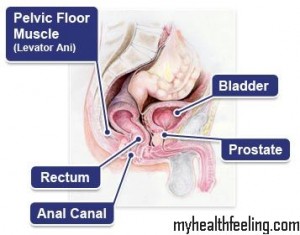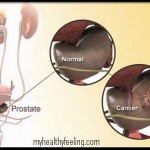Proctalgia Fugax is a sudden, sharp pain in the anus; so sharp that it can awake you from sleep. This pain lasts for a few moments and then disappears totally as swiftly as it came, making you think that it was just a dream.
Proctalgia Fugax is basically an excruciating, fleeting pain felt in the anus. It is also depicted as anal spasm, anal cramp, Dani spasm, recurring spasm of the anus and “anal Charlie horse” as it is comparable to strong involuntary spasm of the leg muscles. It usually happens in the middle of the night, although, it can happen any time of the day. The pain lasts for a variable amount of time, from as short as a few seconds to as long as half an hour. For individuals with this condition, it could happen for as many times as six episodes a year. This condition is not limited to any specific age group, but studies show that attacks start at an average age of 45 years old. Moreover, men seem to be less affected than women.
Causes of Proctalgia Fugax
The root cause of this condition is not known for sure. This condition is a result of unrestrained tightening of the rectal and pelvic muscles, much like the cramping in the legs. Though, sometimes, the pain is associated with a need to defecate and penile erection in males. It is not a psychosomatic condition even though some patients testify that attacks are more frequent if they are stressed. Nor is this condition a result of polyps, fissures and hemorrhoids and other rectal conditions.
Diagnosis of Proctalgia Fugax
Diagnosis of this condition is based on the symptoms the patient describes. The doctor may perform colonoscopy or sigmoidoscopy to ascertain that there are no other problems in the rectal area. Aside from this, there are no other tests or procedures in diagnosing Proctalgia Fugax. In rare cases when an attack happens under the observation of a doctor, there are no consistent irregularities found.
Remedy for Proctalgia Fugax
This condition has no cure, although, the pain could somewhat be remedied using various methods. One may soak in warm bath to relieve the pain. However this may not be much useful considering the attack could have ended even before the bath is prepared. Warm enemas, relaxation techniques and massaging the anus could help. Also effective is stretching the rectal area by touching the toes or applying pressure to the anus. Pain relievers like ibuprofen and paracetamol may also be taken. For those who experience recurring, excruciating and long episodes of Proctalgia Fugax, inhaling salbutamol is effective. Antispasmodics and sedatives may likewise relieve pain.
Prevention of Proctalgia Fugax
This condition has no definite cause, cure nor prevention. Taking in foods high in fiber and plenty of liquids might prevent the onset of Proctalgia Fugax since these make the stools soft thus preventing spasms. Adding fiber supplements to the diet is also recommended. Other than the aforementioned, there are no other sure methods to prevent this condition’s occurrence. The wisest course of action is to have yourself checked to rule out serious problems.


My husband has proctalgia and he has many episodes each day and the do not go away without medication. We would like to know what we could do to keep from having so many episodes.
My wife has this and she takes a couple of pills from Hylands Leg Cramps. They dissolve under your tongue quickly and provide some level of relief. They are not perfect, but have helped her tremendously. Give them a shot. They are on Amazon and not very expensive. Make sure they have quinine in them.
As described, mine happen at night, almost always at 2 am, and every month or two. I have had a couple during the day while driving, very dangerous. I have to leave the bed so not to wake my wife. I take a coupe ibuprofen and sometimes also a Tylenol and writhe on the bathroom floor until the episode finally ceases. Usually come and go for about half an hour. My doctor was baffled, all he could tell me is that if my method worked, keep taking the pain reliever, but there is not preventative or cure. Just have to tough it out.
I’ve had this for a few years now and once I heard that this is caused by spasms I started using Frankincense oil on my lower spine area as soon as I feel it coming on. The oil is anti-spasmodic and calms immediately. The pain starts to recede and go away completely within minutes. I’m so thankful for essential oils!!
I just had one of those attacks it lasted over 1 hour pain unbearable i took a pain killer it took awhile until the pain was gone.
I’ve suffered this since childhood, and can verify the intensity of the pain. “Writhing on the bathroom floor” is about right. I can’t avoid shouting out and whatever I’m doing I writhe until it’s gone, usually pushing my pelvis up or withdrawing my bum to try to get away from the pain, but I have to be grateful that mine only usually lasts for maybe 20 or 30 seconds so nothing would help as it would be over before relief arrived.
I generally get it if I put off going to the toilet, or I am constipated (which is quite rarely)
It is though literally “a real pain in the ass”, but an extremely excruciating one!
I have had this for years. I read years ago to put pressure on the area by straddling the bathtub. Sounds weird, but it worked. The sooner you do it the better. It is pretty painful at first, but the pain gets better in just a few minutes. The trick is to continue with the pressure for 4-5 minutes after the pain is improved. If you stop to soon it will come back. I sometimes have to do it twice, but if I’m patient and continue those last few minutes once does the trick. Hope this helps someone.